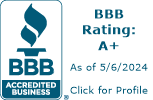We work with clients on a holistic basis at Total Wealth Planning. Oftentimes, this means looking for value or savings in all areas of a client’s life. I recently helped a client navigate the Ohio Homestead exemption process to save their family a few hundred dollars. Creating value for clients is the essence of our work and saving money for somebody always feels good. Therefore, I’m sharing an overview of the Ohio Homestead Exemption in hopes to raise awareness and help others.
If you are age 65 or older and you’ve owned your home as of January 1st (or if you were permanently disabled prior to January 1st of the current year), you could qualify for the Homestead Exemption.
What is the homestead exemption?
It is a relief in real estate tax paid on the primary residence for senior citizens who report low taxable income, disabled individuals, or 100% disabled veterans of any age.
How much can I save?
The homestead exemption will effectively discount the market value of your property by $25,000 in order to calculate the real estate taxes owed. For 100% disabled veterans, the discount can go up to $50,000 of your property market value. The amount of total savings will depend on real estate taxes in your specific location; however, an average tax payer will save about $400-$500 per year.
How do I know if I qualify?
Four ways to qualify for the homestead exemption are as follows:
- Those approved for the exemption in 2013 and prior are grandfathered and are not subject to income means testing (see below for explanation) or,
- If you have been found to be totally and permanently disabled as of January 1st of the current year, your Ohio Adjusted Gross Income must be less than $32,800 in 2019 or,
- If you are a military veteran who is deemed 100% disabled and unemployable caused by service related injuries or,
- You are the surviving spouse of the qualified individual as defined above.
Do I have to apply every year?
You need to complete the formal application in the first year you apply. In subsequent years, the county auditor will mail you a form in March to verify your continued eligibility including an annual income-means test. If you are a 100% disabled veteran who has previously been granted the exemption or you are a grandfathered applicant who received the exemption prior to 2013, then you will automatically be enrolled for the homestead exemption each year – not subject to income-means testing.
What is income-means testing?
Income-means testing is a verification process to determine if your reported taxable income is low enough to qualify for the exemption. On your first application and each subsequent year, if applicable, you will be required to verify this eligibility. You can do this by responding to the county auditor’s March request along with page 1 of your Ohio Income Tax return to prove that your Ohio Adjusted Gross Income (combined with your spouse’s OAGI) will be below the annual limit ($32,800 in 2019). Generally speaking, your Ohio Adjusted Gross Income is your Federal AGI, less taxable social security benefits, long term care premiums, Ohio 529 contributions, among other less common deductions.
As with many programs, additional details may apply. Please do not hesitate to speak with your Advisors at Total Wealth Planning to confirm if you will be eligible for this and years to come!







